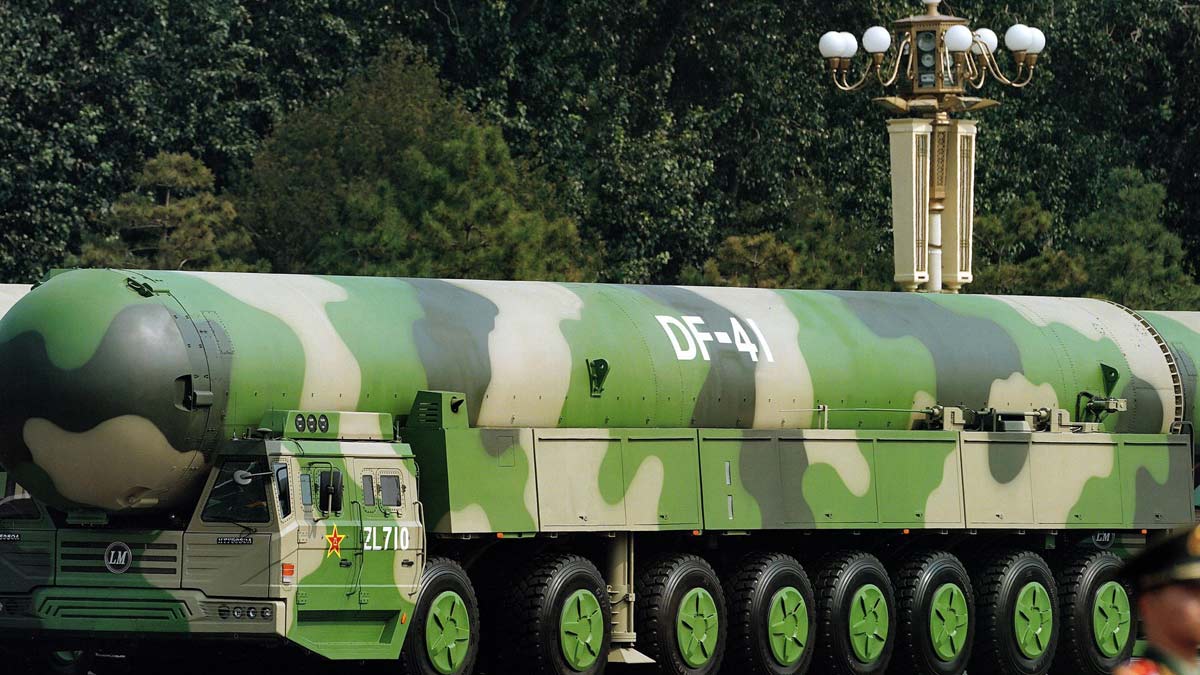The zirconium connect: Understanding Australia's hidden role in China's hypersonic missile race

China may be the world’s leading producer, processor, and exporter of rare earth minerals, but it lacks one critical mineral: zirconium, an important element in manufacturing nuclear fuel rods.
Australia, which controls 74 per cent of the world's zirconium reserves, appears to be helping China's hypersonic missile and nuclear programmes as Chinese firms have become major shareholders in two Western Australia mines that produce the mineral, say media reports. China reportedly has less than one per cent of the global deposits of this critical mineral.
One of these miners is Image Resources, in which China's LB Group is the largest shareholder.
The collaboration is surprising, as Australia is a prominent member of AUKUS, the security partnership between the US, Australia, and the United Kingdom. This tie-up comes as the US attempts to end China's stronghold over rare earth minerals.
"China is our largest trading partner on the one hand, and our biggest source of security anxiety on the other. And that's just the way the world is," Australian Defence Minister Richard Marles has been quoted as saying.
However, military strategist David Kilcullen observed that it is important to have an understanding of where the minerals go. "Everything now, not only in nuclear technology, but writ large, is dual use. That's particularly true of nuclear capability...." (China's military-civil fusion doctrine) puts commercial companies and commercial tech development under the control of the military," Kilcullen has been quoted as saying.
The National University of Defence Technology, a research arm of the People's Liberation Army, recently admitted that a regular supply of zirconium is important for China's military technological progress.
Zirconium and the Russia-Ukraine war
According to media reports, China has increased its zirconium supply to Russia since the start of the Russia-Ukraine conflict. A report by www.abc.net.au pegs this increase at 300 per cent. The parent company of one of the Australian miners is involved in this trade, according to the report.
Why zirconium is important
Zirconium—traditionally used in bathroom tiles, toilets, dental crowns, and implants, and jewellery—has a major role in nuclear reactors and as a structural and cladding material in nuclear warheads and propulsion systems.
According to Stanford Advanced Materials, "Zirconium's low neutron absorption and high thermal resistance make it indispensable for manufacturing nuclear fuel rods. Historically, up to 90 per cent of global zirconium production has been consumed by the nuclear industry." This trend continues as the demand for nuclear energy rises worldwide.
Its heat resistance makes it essential for hypersonic missile components, which must withstand high temperatures of 2,000 degrees Celsius during flight.
According to the paper by the National University of Defence Technology, the allocation and use of zirconium "has become a critical issue for ensuring national security and advancing military technological progress".
"As a major importer and consumer of zirconium … China is facing severe challenges to resource security," it read.
Defence